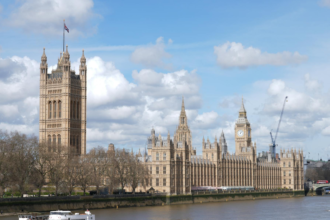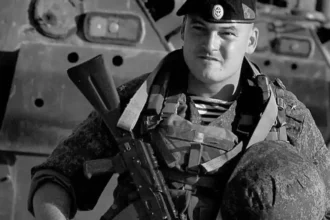As war rages on in Ukraine, Montenegro has opened its doors to tens of thousands of Ukrainians and Russians, creating an unexpected refuge marked by tolerance, empathy, and surprising friendships.
- How Has Montenegro Become a Sanctuary for Refugees?
- What Challenges Do Refugees Face in Montenegro?
- How Are Refugees Finding Support and Shelter?
- How Are Russians and Ukrainians Building Relationships in Montenegro?
- How Are Russian and Ukrainian Volunteers Working Together?
- What Changes Are Seen in the Russian Diaspora?
- What Does the Future Hold for Refugees in Montenegro?
- How Has Montenegro Become a Quiet Refuge Amid Conflict?
How Has Montenegro Become a Sanctuary for Refugees?
Millions of people have been displaced throughout Europe by the continuing conflict between Russia and Ukraine since February 2022. An unexpected haven has surfaced outside the European Union, Montenegro, a small Balkan republic with a recent history of violence. At the same time, many fled to Germany, Poland, and other EU nations.
Montenegro, with a population of slightly over 600,000, has taken in more than 200,000 Ukrainian refugees, ranking highest among nations in per capita Ukrainian refugee count worldwide. Still, this gesture of kindness goes beyond the people of Ukraine. Montenegro has also attracted thousands of Russian expatriates fleeing war, conscription, and persecution under Vladimir Putin’s autocratic government.
“Montenegrins are quite calm. Savvy Dobrovic, a property owner in the well-known Adriatic resort of Budva, says they wish to help. He gestures to the nation’s peaceful and sympathetic culture. Meaning “slowly,” the phrase polako captures the Montenegrin way of life, which has helped to mitigate the unexpected refugee flood.
What Challenges Do Refugees Face in Montenegro?
Although Montenegro’s approach has received compliments, living for these fresh immigrants is complex. Many Ukrainians and Russians need help finding steady, well-paid employment despite the visa-free policy and cultural commonalities in language and religion. Most accessible work is seasonal, concentrated in coastal tourist destinations, and pays poor salaries.
“Better quality, professional work is harder to find,” notes Dobrovic. While some are lucky to keep distant work from their countries, many professional prospects still seem unreachable.
The government’s decision to award temporary protection status—which has since been extended until March 2025—has helped Ukrainians living in Montenegro. More than 62,000 Ukrainians have registered for legal status as of September last year—about 10% of the national population. The nation’s rigorous citizenship rules provide a significant obstacle even with the kind reception. Many of the refugees fear about their long-term future since getting citizenship is still nearly impossible.
How Are Refugees Finding Support and Shelter?
Charity groups like Pristaniste (Haven) in Budva have become lifelines for most needy people. Helping new arrivals with documentation, employment, and housing hurdles, the shelter provides two weeks of safe accommodation, food, and support.
A Pristaniste volunteer says, “We offer a space where people may relax and plan their next moves.” Staying at the shelter as a temporary haven from the war or visiting for two weeks as a sort of “holiday” from the atrocities of war is another choice available to Ukrainians.
One of those who has found comfort in Montenegro is 60-year-old art instructor Valentina Ostroglyad from Zaporizhzhya, a district in southeast Ukraine, under continual Russian bombing. “I couldn’t even tolerate a roof falling in when I first came to Montenegro. I related it to explosions,” she remembers.
Her life has lately acquired a different rhythm. “Today I climbed a spring and took in the sea and mountains. And people here are really friendly,” Ostroglyad notes, clearly more at peace.
How Are Russians and Ukrainians Building Relationships in Montenegro?
Notwithstanding their differences, Montenegro’s Russians and Ukrainians have developed a feeling of community. Unlike other areas of Europe, where conflicts between these groups have occasionally been more intense, Montenegro has mainly avoided such strife.
“People here are trying to help, they’re not doing anything against our country, against us, or against my children,” says Sasha Borkov, a Ukrainian driver from Kharkiv who left the fighting. ” Unlike those who fire at and destroy our houses, the Russians here are different.”
Initially turned away at the Polish border due to a past jail term for trafficking undocumented migrants, Borkov was separated from his wife and six children as they fled to Germany. Thanks partly to Pristaniste, he sought safety in Montenegro following days of uncertainty. He now works, and his family will be joining him shortly. “Pristaniste brought me food and drink as well as lodging. I slept, then I started searching for a job.”
Another project underway in Budva, under the direction of Ukrainian teacher Yuliya Matsuy, seeks to heal war-torn children. Matsui has set up a center where Ukrainian kids might study history, English, math, art, sing, dance, and watch films. “They originally showed no desire for the sea or the mountains. They desired nothing,” she says, pointing out that many youngsters came bearing significant emotional traumas.
“But when they started interacting, their eyes were smiling,” Matsuy notes. “It is impossible to portray the smiles and feelings of those children. And only then did we realize we were doing ethically.”
How Are Russian and Ukrainian Volunteers Working Together?
Russian volunteers help Pristaniste and Matsuy’s centers, promoting harmony between the two communities. This has helped to explain the relative absence of conflict between Russian and Ukrainian refugees in Montenegro, where cooperative Russian-Ukrainian projects have even surfaced.
One Pristaniste employee observes, “friendships have grown between volunteers and residents.” The ties have become so close-knit that a Russian-Ukrainian couple who met at the shelter recently got married.
In Montenegro, Ukrainian Katarina Sinchillo notes that the Russian diaspora here is distinct. “I believe the residents of this area are a rather different community since it’s the intelligentsia—educated people who can’t live without the arts,” she says.
In Montenegro, Sinchillo and her husband, fellow actor Viktor Koshel, manage a theater organization that includes performers from the former Soviet Union. Their plays have been highly welcomed, particularly by Russians opposed to the conflict. Sinchillo notes, “Progressive Russian people, who are helping Ukraine, go with interest and pleasure.”
What Changes Are Seen in the Russian Diaspora?
Years of living in Montenegro have seen veteran Russian rock musician Mikhail Borzykin observe that the environment inside the Russian community has changed dramatically since the conflict started. He says “fierce arguments” over Putin were typical before the war, but the dynamic has altered with the current flood of young, anti-war Russians.
“There is agreement on the major questions since most young people who have come here understand the horror of what is happening,” Borzykin says.
Borzykin belongs to a volleyball team composed of Russians, Belarusians, and Ukrainians who have developed friendships despite strife back home. “We all occupy the same wavelength,” he explains.
Borzykin notes that the older, wealthier Russian elite members—who he refers to as the Vatnaya diaspora—have stayed mostly silent, seated peacefully in their homes bought years before.
What Does the Future Hold for Refugees in Montenegro?
Although Montenegro has a tolerant and accepting environment, many refugees still need to find their futures. Strict citizenship rules in Montenegro mean that many of them might have to depart finally.
Once the war ends, Ukrainians like Borkov hope to go back home. “Right now, our lives are under great danger, but, of course, we will go home if it ends.” he says. “Nothing better than home exists here.”
For many Russians, though, the idea of going back to their country is significantly less enticing. “It’s not just Putin who persecuted me; it’s the little people in my city who followed his orders,” a Russian refugee from Petrozavodsk Natalya Sevets-Yermolina notes. “They will still be there even if Putin passes.”
Borzykin also feels this, thinking it will take decades for Russia’s societal views to alter. Germany required thirty years following the Nazis. I am worried I won’t have that long,” he says.
How Has Montenegro Become a Quiet Refuge Amid Conflict?
For now, Montenegro stays a peaceful haven for war refugees; it is where relations between Russians and Ukrainians grow and flourish despite the continuous bloodshed. Borzykin notes, “You go to the sea, and all the gloomy political propaganda just disappears.”








